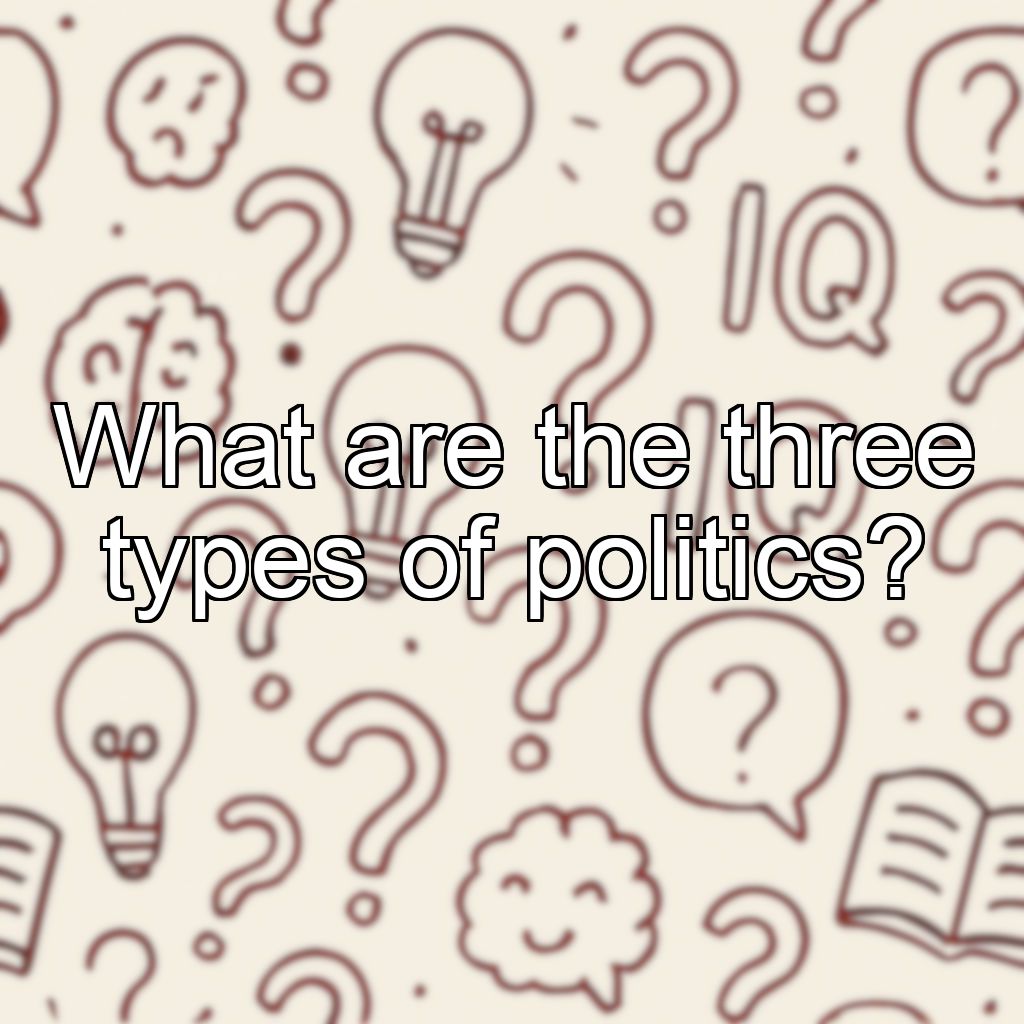What are the three types of politics?

Three Types of Politics
Political scientists commonly refer to three fundamental types of politics, particularly as described by Theodore J. Lowi in his influential work, "American Business, Public Policy, Case-Studies, and Political Theory." These types help explain how policies are made and how political power is exercised:
- Distributive Politics
- Focuses on the allocation of resources, benefits, or services to specific groups or individuals.
- Typically involves government spending projects such as infrastructure, grants, or subsidies.
- The benefits are concentrated, but the costs are spread broadly among taxpayers.
- Regulatory Politics
- Involves the government setting rules that restrict or direct the behavior of individuals or groups.
- Examples include environmental regulations, business practices, and health and safety standards.
- Often pits one group against another, as regulations can create clear winners and losers.
- Redistributive Politics
- Concerns the transfer of resources from one group to another to address social or economic inequalities.
- Examples include welfare programs, progressive taxation, and social insurance.
- Typically more contentious, as it directly reallocates wealth or benefits between segments of society.
Understanding these types of politics helps in analyzing policy decisions, political debates, and the motivations of various stakeholders in the political process.